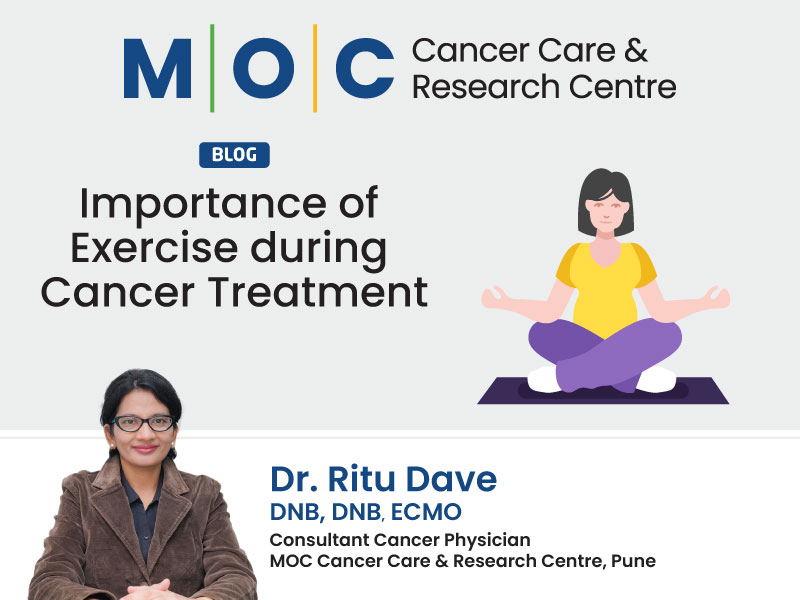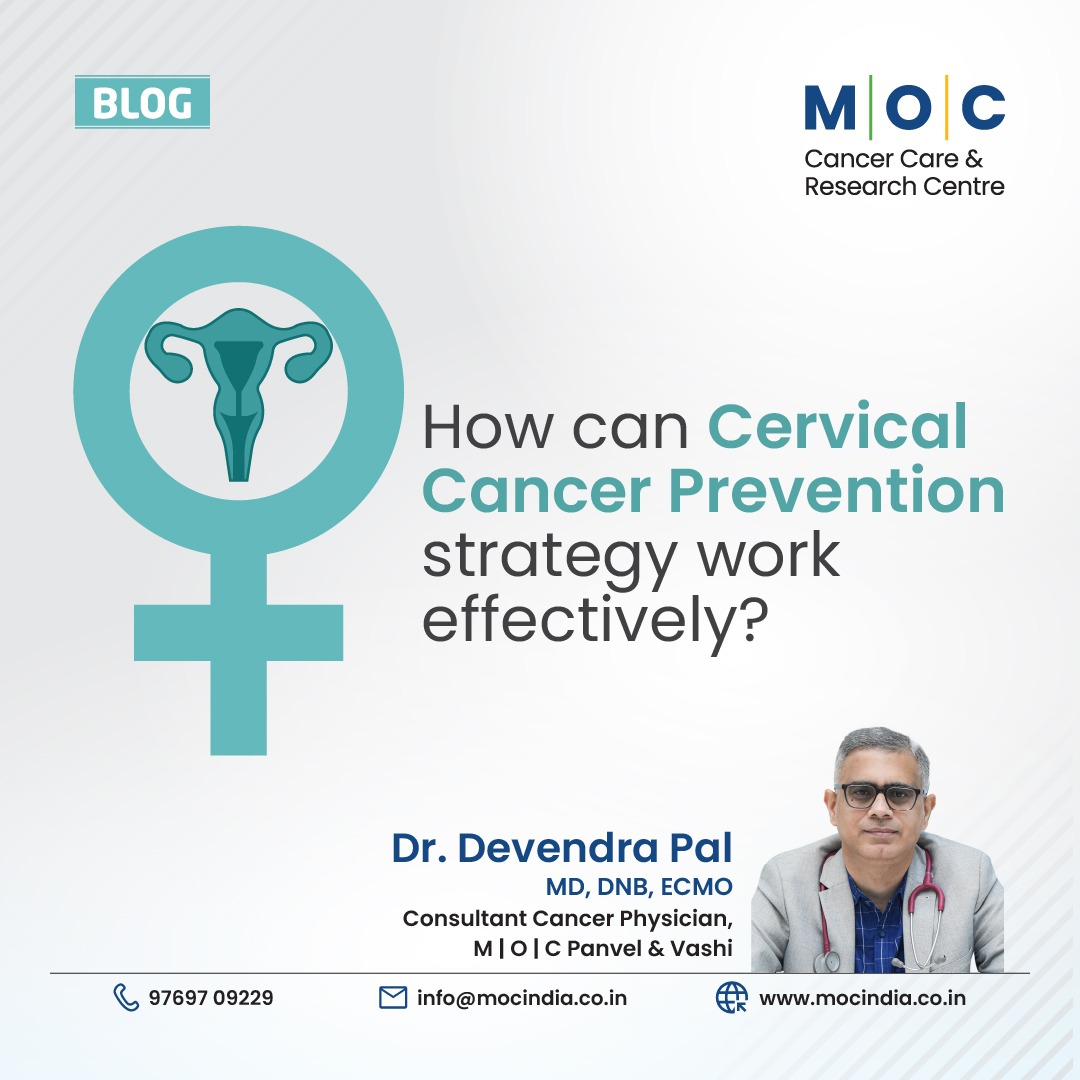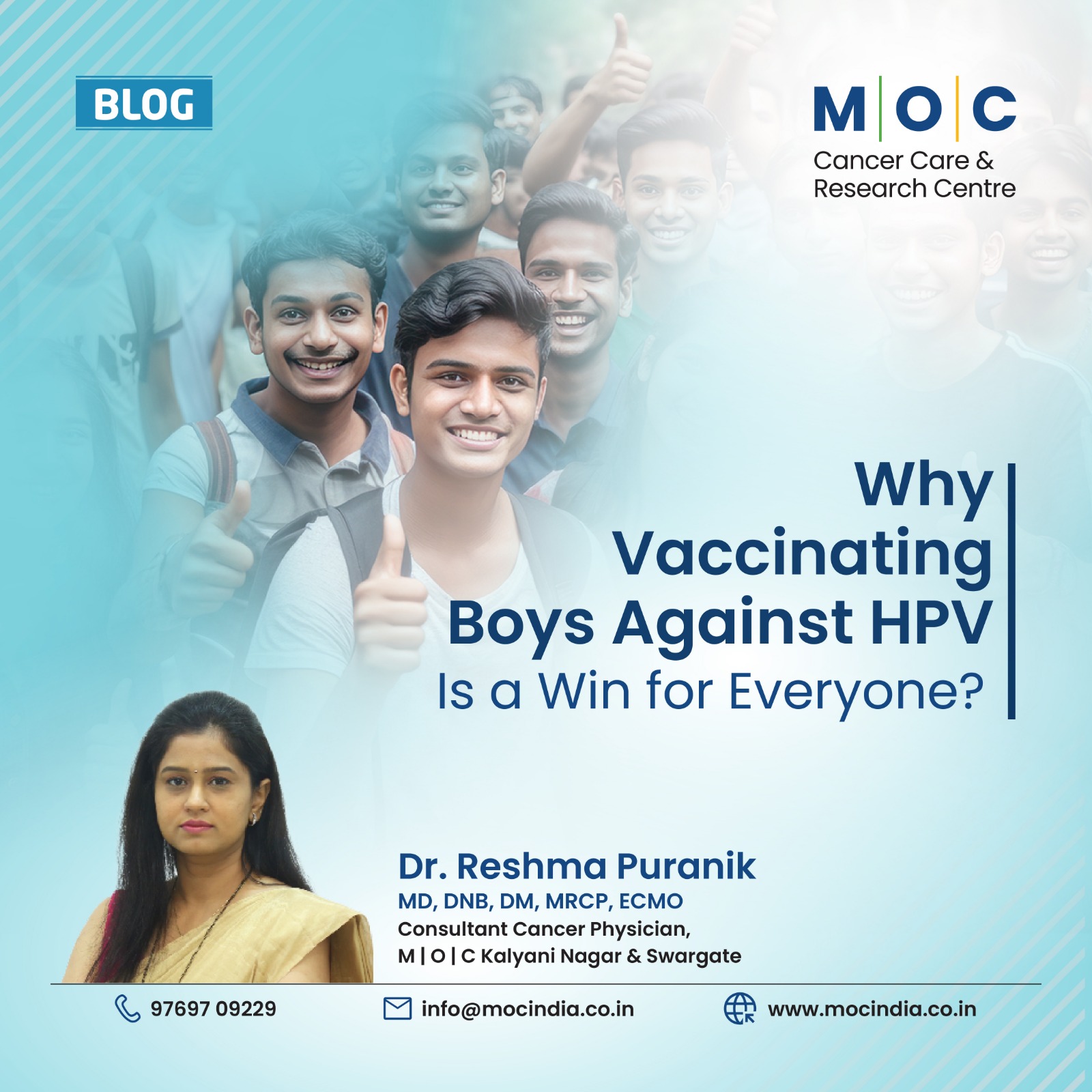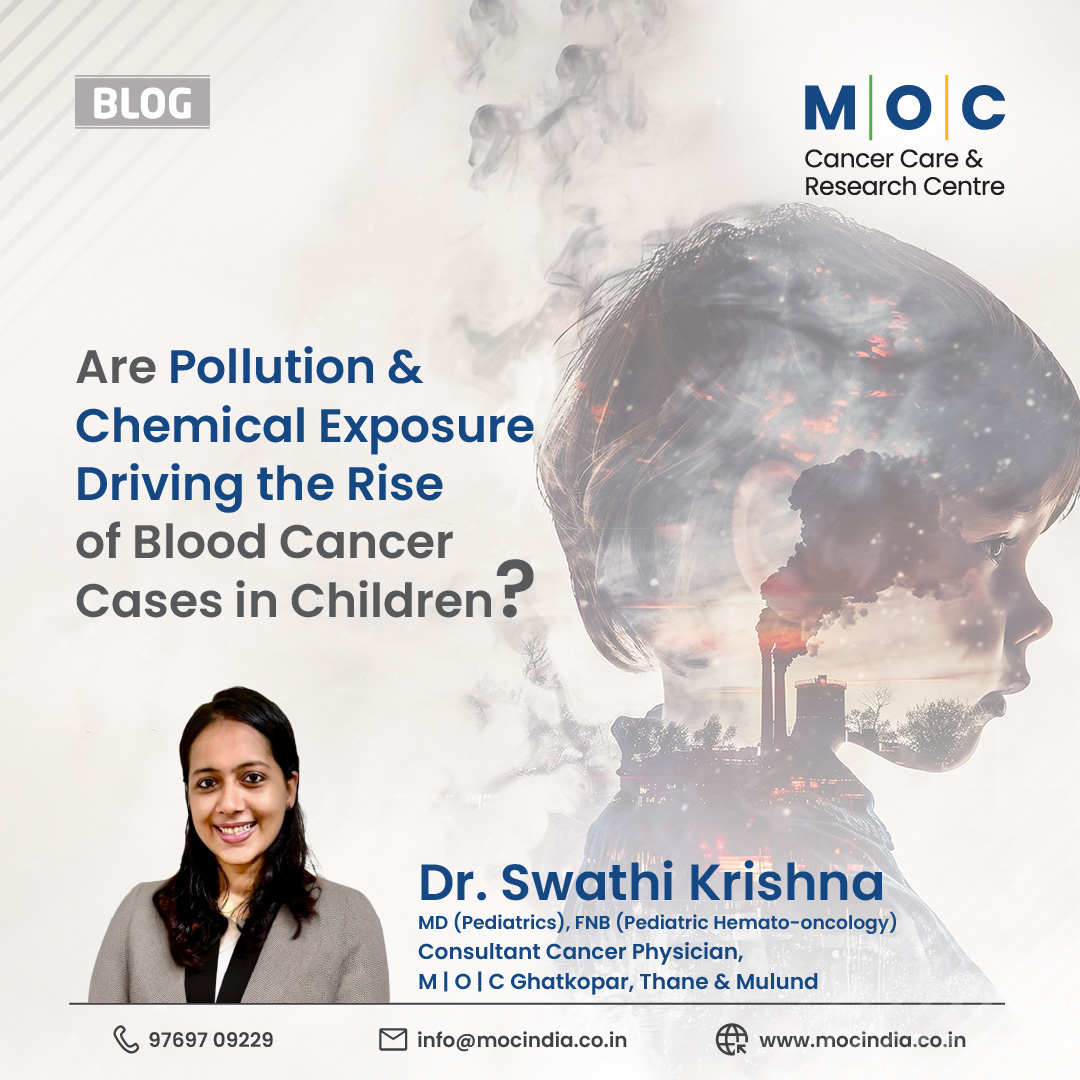Importance of Exercise during Cancer Treatment



Advancement in cancer therapy in recent years is a blessing for cancer survivors. It helps in early diagnosis and substantially improves the quality of life and survival of cancer patients. Although increasingly efficacious cancer therapy can produce some physiologic and or psychological side effects. Regular physical exercise can help you get through this phase, both physically and mentally.
Exercise is a crucial part of cancer treatment. It improves the efficacy of your cancer therapy and reduces its side effects. Several guidelines such as the American College of Sports Medicine (ACSM), American Cancer Society Nutrition (ASCN), and American Society of Cancer Oncology (ASCO) recommend patients engage in 150-300 minutes of moderate-intensity exercise each week during active cancer treatment.
Exercises to include during cancer treatment:
- Aerobic training
- Resistance training
- Flexibility training
Benefits of exercise during cancer treatment?
- Reduces cancer related fatigue.
- Improves quality of life
- Improved physical strength
- Reduces anxiety
- Reduces depression
- Reduces lymphedema
- Improves bone health
- Improves sleep
Exercise improves overall health status and reduces the risk of co-existing conditions. It also reduces the risk of recurrence of cancer or developing other primary cancers.
Build your exercise program wisely
Talk to your health care team before you start any exercise after the cancer treatment even if you were active before cancer diagnosis. Your fitness level post-cancer diagnosis and treatment may differ. Your healthcare team can advise you on a unique treatment plan depending on the type of cancer, treatment used, side effects you are experiencing, other co-existing conditions, and your fitness level. Considering the impact on your overall health and energy levels it is important to take safety precautions while you exercise.
How to exercise safely:
- Start slowly: Increase your exercise intensity gradually irrelevant of your physical activity level before cancer.
- Choose a safe environment: As your immunity may be hampered post cancer avoid exercising in closed gyms, instead prefer to work out at home or in an open space.
- Listen to your body: Do not overdo it. Make sure you exercise only till you feel better.
- Maintain a healthy diet: Eat nutritious food, high in protein, especially after exercising. Drink plenty of fluids.
In a few cases, you may have to do exercises under the supervision of a specialist, which generally comes under a cancer rehabilitation program. Talk with your oncologist to understand if you need a rehabilitation program. Discuss in detail before beginning your cancer therapy.
Here are a few questions you can ask your doctor:
- What are the exercises recommended for me; its intensity and duration?
- When can I begin exercising?
- Is there a specific diet plan I should follow while exercising?
- What are the indications that I should stop exercising?
- Are there any specific exercises to avoid during the treatment?
- Is there a need for a rehabilitation program for me?
Being physically active has proven to be beneficial in managing your chemotherapy side effects. A healthy lifestyle will also reduce the risk of cancer coming back.
Dr. Ritu Dave
DNB DNB ECMO
Consultant Medical Oncologist
MOC Pune
Latest Blogs
-
![Nidar Naari is a movement initiated by M|O|C Cancer Care & Research Centre]()

- 10th Feb, 2026
- Nidar Naari is a movement initiated by M|O|C Cancer Care & Research Centre
-
![Cervical Cancer Awareness Month- January 2026]()

- 23rd Jan, 2026
- Cervical Cancer Awareness Month- January 2026
-
![Why Vaccinating Boys Against HPV is a Win for Everyone ?]()

- 20th Jan, 2026
- Why Vaccinating Boys Against HPV is a Win for Everyone ?
-
![Are Pollution and Chemical Exposure Driving the Rise of Blood Cancer Cases in Children?]()

- 17th Jan, 2026
- Are Pollution and Chemical Exposure Driving the Rise of Blood Cancer Cases in Children?
-
![Significant Advancements in Cancer Treatment in 2025- Dr Kunal Jobanputra- M|O|C Kemps Corner and Mahim]()

- 12th Jan, 2026
- Significant Advancements in Cancer Treatment in 2025- Dr Kunal Jobanputra- M|O|C Kemps Corner and Mahim
-
![Managing sleep disturbances during and after cancer treatment]()

- 11th Dec, 2025
- Managing sleep disturbances during and after cancer treatment
Book Your Appointment








